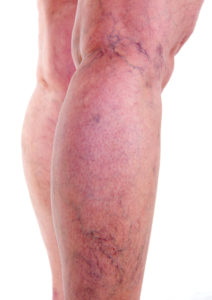What Causes Lymphedema?
 Lymphedema is a little-understood disease. Though between 1 and 2 million American suffer from Primary Lymphedema, and 2 to 3 million suffer from Secondary Lymphedema, it is not an issue that seems commonly talked-about or one that many people are aware of. Though Lymphedema is little discussed, it can be a serious issue that can affect populations that are already experiencing health issues. In fact, there are two main types of Lymphedema. Primary Lymphedema comes on its own, and not as a side effect of another issue. Secondary Lymphedema refers to Lymphedema that does occur as a side effect of another disease, trauma, or issue.
Lymphedema is a little-understood disease. Though between 1 and 2 million American suffer from Primary Lymphedema, and 2 to 3 million suffer from Secondary Lymphedema, it is not an issue that seems commonly talked-about or one that many people are aware of. Though Lymphedema is little discussed, it can be a serious issue that can affect populations that are already experiencing health issues. In fact, there are two main types of Lymphedema. Primary Lymphedema comes on its own, and not as a side effect of another issue. Secondary Lymphedema refers to Lymphedema that does occur as a side effect of another disease, trauma, or issue.
What can be easily dismissed as fluid retention is actually a serious issue that, if left untreated, can end in loss of limb. Keep reading to learn more about this serious condition and what causes it.
Venous Hypertension
High pressure in the veins of the legs may come as a result of weak veins that allow blood to leak downwards (due to the pull of gravity). It may also come as a result of obstruction in the veins due to obesity. Treatment may vary, depending on your specific condition.
Filariasis Infection
Considered a neglected tropical disease by the CDC, Filariasis refers to a parasitic worm that lives in the lymph system of human beings. These tiny worms cause havoc and swelling in the limbs. Men can even develop swelling in the scrotum due to these parasites. Mosquitos transfer the parasites and spread them from person to person. Treating this type of Lymphedema requires killing the parasites and helping prevent transfer within communities.
Obesity
Because obesity can cause pressure on the organs and other internal workings of the body, it shouldn’t come as a surprise that extreme cases may experience other health complications. Lymphedema is one of those complications that especially can start to occur once your BMI (body mass index) climbs above 50.
If you want to learn more about Lymphedema, or are looking for treatment, please call us at 682-499-5672 to schedule a consultation. If you believe to be at special risk of Lymphedema, talking to us before you develop symptoms can help us make a plan for you.
Category:
